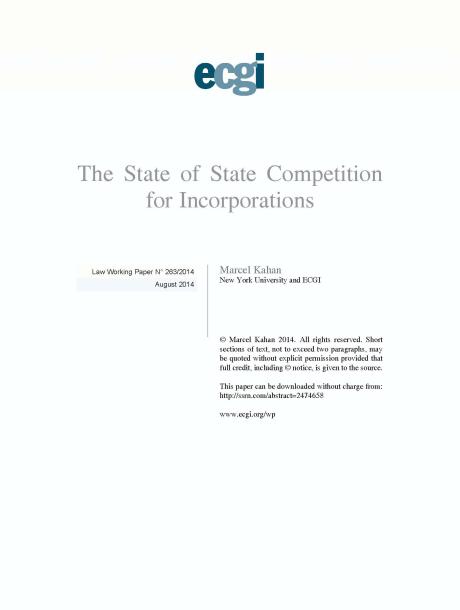
The State of State Competition for Incorporations
Abstract
The competition by states for incorporations has long been the subject of extensive
scholarship. This article tries to deconstruct the state competition debates by showing that scholars are engaged in three separate debates that are only loosely connected to each other. The first, ?directional? debate concerns whether firms, if given a choice, will chose corporate law rules that maximize shareholder value or managerial benefits. Resolution of this question is relevant regardless of whether states ?compete.? All it takes to make this question important is for firms to have a meaningful choice among legal rules. The second, ?competition? debate concerns whether, how, and which states compete for incorporations. Depending on what is meant by ?competition?, competition can exist even in a regime where firms have no choice over where they incorporate and may not exist in a regime where firms have free choice. The third, ?federalism? debate concerns the shape a mandatory corporate law would take if such a law were enacted. Separating these three conceptually distinct questions, and the evidence relevant to each, yields a better understanding of the arguments made by the partisans in the state competition debate and of the issues that remain unresolved.








